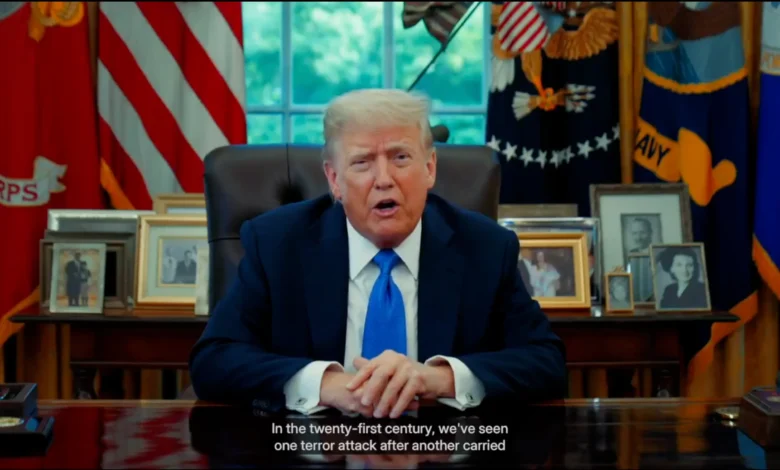Donald Trump Unveils New Travel Ban Targeting 19 Countries

In a major announcement that could reshape U.S. immigration and global travel patterns, U.S. President Donald Trump has issued a fresh proclamation restricting entry for travellers from 19 countries, citing national security threats.
The decision comes in the wake of a recent terror attack in Boulder, Colorado, which Trump linked to foreign nationals living in the U.S. illegally.
“The recent terror attack in Boulder, Colorado, has underscored the extreme dangers posed to our country by the entry of foreign nationals who are not properly vetted. We don’t want them,” Trump said.
“We will not let what happened in Europe happen in America,” he added.
“We cannot have open migration from any country where we cannot safely and reliably vet and screen. That is why today I am signing a new executive order placing travel restrictions on countries including Yemen, Somalia, Haiti, Libya, and numerous others.”
Countries on the List
12 countries face a total travel ban:
- Afghanistan
- Myanmar
- Chad
- Congo
- Equatorial Guinea
- Eritrea
- Haiti
- Iran
- Libya
- Somalia
- Sudan
- Yemen
7 others face partial restrictions:
👉 Burundi, Cuba, Laos, Sierra Leone, Togo, Turkmenistan, and Venezuela.
What About India?
India is not on the travel ban list, and there are no restrictions announced for Indian travellers. However, Trump noted the list is “subject to revision” based on emerging global threats.
Political Backdrop and Reactions
White House spokesperson Abigail Jackson reinforced the administration’s stance on social platform X (formerly Twitter), stating:
“President Trump is fulfilling his promise to protect Americans from dangerous foreign actors that want to come to our country and cause us harm.”
This latest action revives memories of Trump’s 2017 travel ban, which initially targeted seven predominantly Muslim countries: Iraq, Syria, Iran, Sudan, Libya, Somalia, and Yemen. That policy was later upheld by the U.S. Supreme Court in 2018, before being overturned by President Joe Biden, who called it “a stain on our national conscience.”











